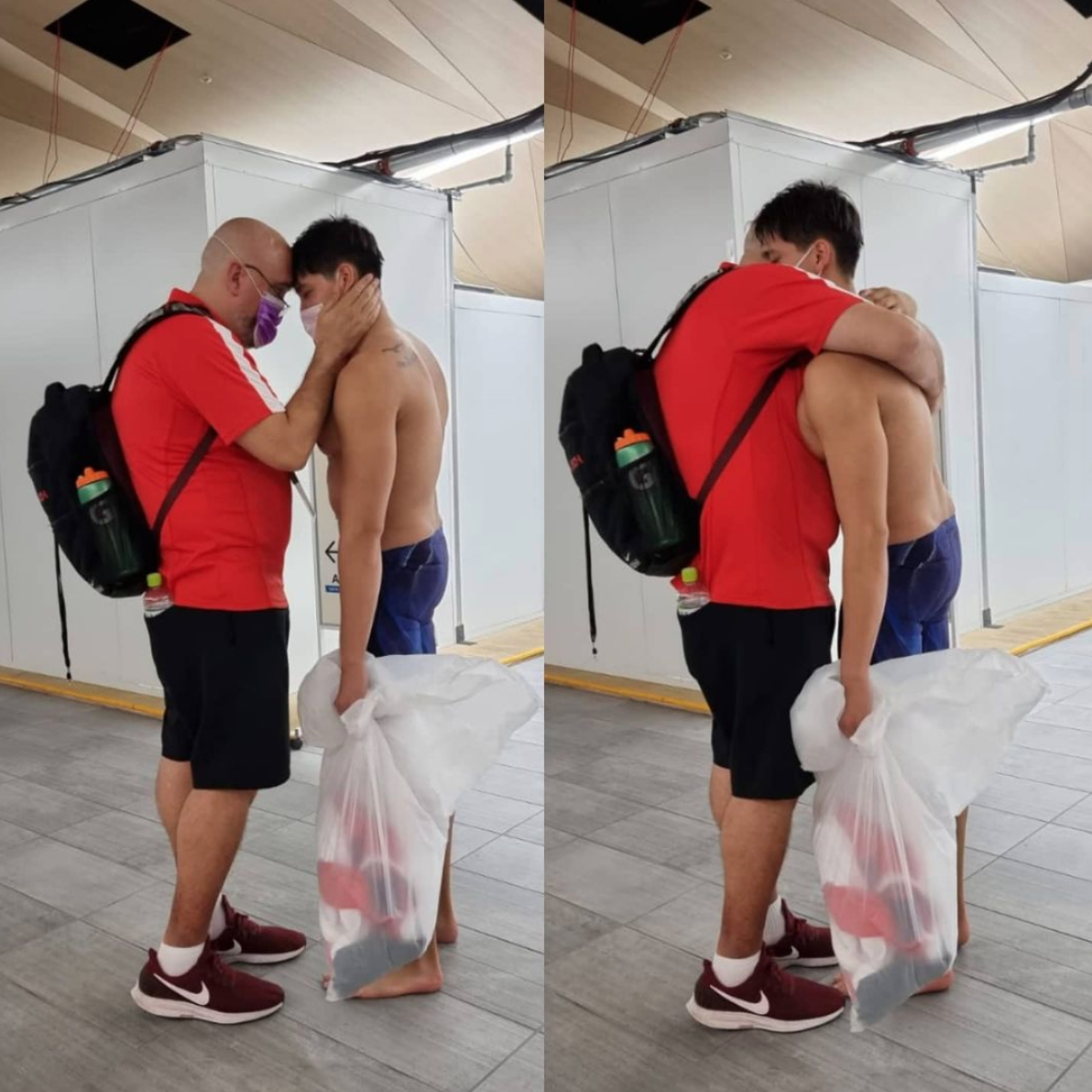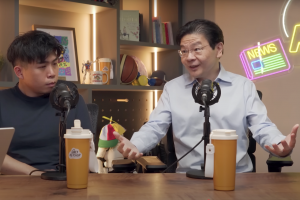Top image: @sergiolopezmiro on Instagram.
When we first went into lockdown in early 2020, there was a collective will of self-encouragement and cheers of ‘we-will-get-through-this!’ that has now since faded. My friends and I would get on ‘Houseparty’ group calls to entertain each other on weekends, we would send each other care packages with things that would encourage us to stay fit, and we would share new hobbies to try–baking, knitting, crossfit. It felt like a constant relay to keep each other motivated while we ran to the finish line.
But as we ran, the finish line got pushed back once, twice, and eventually, we stopped counting. It became pointless. And we got tired of running. Slowly, the care packages turned into check-in texts, and the will to take up new hobbies was replaced with the joy of doing nothing.
While this trajectory sounds grim, it’s been freeing to witness. I don’t feel the need to call friends to keep connections alive anymore because there’s nothing left to be said. I don’t make promises to meet up anymore because new regulations may cancel those plans with just a couple of days’ notice.
Neither do we send each other resistance bands or recipe books because we know we don’t need to be constantly doing something to maintain a sense of normalcy—whatever that may mean.
We’re there for each other, but we’re also letting ourselves hold space to merely exist.
The strength to continue is enough
I only realised how this mentality of mine evolved when I saw the response to Joseph Schooling’s performance at the Tokyo Olympics where he finished last in his qualifying heat at the Tokyo Olympics, causing an uproar online.
But do you know what I thought when I saw that? It doesn’t matter if Joseph Schooling wins or loses; I’m just impressed at his motivation to train, given the crappy two years we have just had.
I, on the other hand, gained and lost motivation to exercise. The same way I gained and lost motivation to cook, excel at work, rediscover my country, and learn new skills. And it’s not necessarily bad because I know that drive will resurface. I know that it’s all a result of me needing to be in my cocoon a little longer before I’m ready to step out and take on the world yet again.
And that is why I feel particularly sympathetic towards Joseph Schooling. Not because he failed, but because I see how quickly and viciously people held his downfall against him when he had already done so much for Singapore. I see the pressures we are all placing on each other in a time where even the best of us are finding it hard to stay motivated. We hold ourselves, as per the nation’s subliminal instructions, to high regards, and, evidently, athletes to much, much higher standards. Evidently, failures are for the hoi polloi, not celebrated Olympians.
I also wonder if the criticism is fair considering he probably also had a tough time over the past two years as well. Maybe he, too, had been separated from his family for extended periods. Perhaps he had to contend with quarantine orders and miss out on training. Maybe seeing his father being diagnosed with cancer took an emotional and mental toll on him.
What does this say about how we value worth in society?
When Joseph Schooling won Singapore’s first-ever gold medal in 2016, he was the pride and joy of the nation. We stood by the road, cheering him on, waving mini Singapore flags as the bus he’s on drove by. In Parliament, a motion was enacted to formally congratulate Schooling on his gold medal win. It was a coronation fit for a king—but heavy is the head that wears the crown.
When he lost last week, the narrative changed: why did he fail? What did the country do wrong? What did he do wrong? How dare he not perform! Does he not realise how much we count on him to succeed?
While it’s fair to want to learn from past mistakes, this urgency to demand responsibility and accountability is symptomatic of a culture that uses achievements as the ultimate metric of success. Achievements, we have been told, make us who we are. The school we go to, the job we get, the digital trinkets we collect and the house we buy all define our worth.
The pandemic has only further amplified this. The messaging we’re fed is that we need to keep ‘upskilling’ ourselves to be on top of our game. We need to improve our skill set lest the pandemic renders us redundant. That this global crisis is no excuse to slow down. “Toughen up. Look at that flight attendant who pivoted to baking brownies from home and is now sold out every week. Or that retrenched father working day and night delivering food. If they can do it, what’s your excuse?”
Here in this publication, I have a series called Singaporeans Abroad, where I showcase countless stories of Singaporeans continuing to thrive around the world despite the pandemic. But while these series may, on the surface, look like a proud showcase of individuals defying the odds, it is, in fact, about how the pandemic is teaching us the importance of following our own paths.
Some may want to use this time to hone in, work hard, and come out of this pandemic stronger than before. But I wanted to highlight those who may have taken a road less travelled. Those who found that their happiness didn’t come from appeasing society’s standard of success, but by figuring out what made them happy as individuals.
A couple of months ago I spoke to Jane, a Singaporean who left her car, career and condo to become a digital nomad in Croatia. She told me how for years she lived the Singaporean dream, and how that made her miserable. It was never her dream in the first place, it was how she internalised what society deems as success. When her marriage fell apart, she was forced to face the fact that this life was not the one she wanted to be living. So she left, and travelled for months, taking the time to heal before finding her footing again.
Jane taught me that when we fall, we don’t need to stand up in a heartbeat. We must and we can take our time to get up again, and not just because it’s good for us, but because it’s absolutely necessary.
Where do we go from here?
If Joseph Schooling had won, it would have been a glorious victory. The nation would have accorded him, at the very least, a good fifteen minutes of raucous applause at our windows at 8 pm. The front pages of newspapers would tell the inspiring story of how this young athlete managed to work hard throughout the pandemic and overcome his setbacks. It would have been another motivational story of resilience in difficult times. “Look at Joseph Schooling, everyone! See how well-adapted he is, proving once again that you can be tenacious in these difficult times. It’s not impossible!”
There’s a lesson here we can learn from Joseph’s public fall from grace–the simplest being that we need to stop having such high, unrealistic expectations of ourselves. Because if even the greats can’t be great now, who are we to expect that from ourselves? And above all else, if we stop projecting our expectations onto them, we may find that it liberates us too, unshackling our feet from the burdens of perfection. Now more than ever, we need to break the cycle of forced aspirations because they may have never been ours to start with.
Soon, Singapore will open up to the world again. But let’s not rush ourselves to be our best selves by then. We have all, after all, been through a hell of a journey these past few years. And if there’s one thing we can do to make this transition easier, it’s to unlearn and untether from the notion that our values as individuals lie solely in our achievements.
Many of us may still not see a clear finish line in sight, but we can take comfort in knowing that we are in the good company of many others who feel the same. But before we pick up our pace, let’s remove the weight and society’s expectations of success we have put on our own shoulders. Put it down, shrug those shoulders, take a deep breath and start with just one foot in front at a time.
Tell us what you thought of this piece at community@ricemedia.co. If you haven’t already, follow RICE on Instagram, Spotify, Facebook and Telegram.







